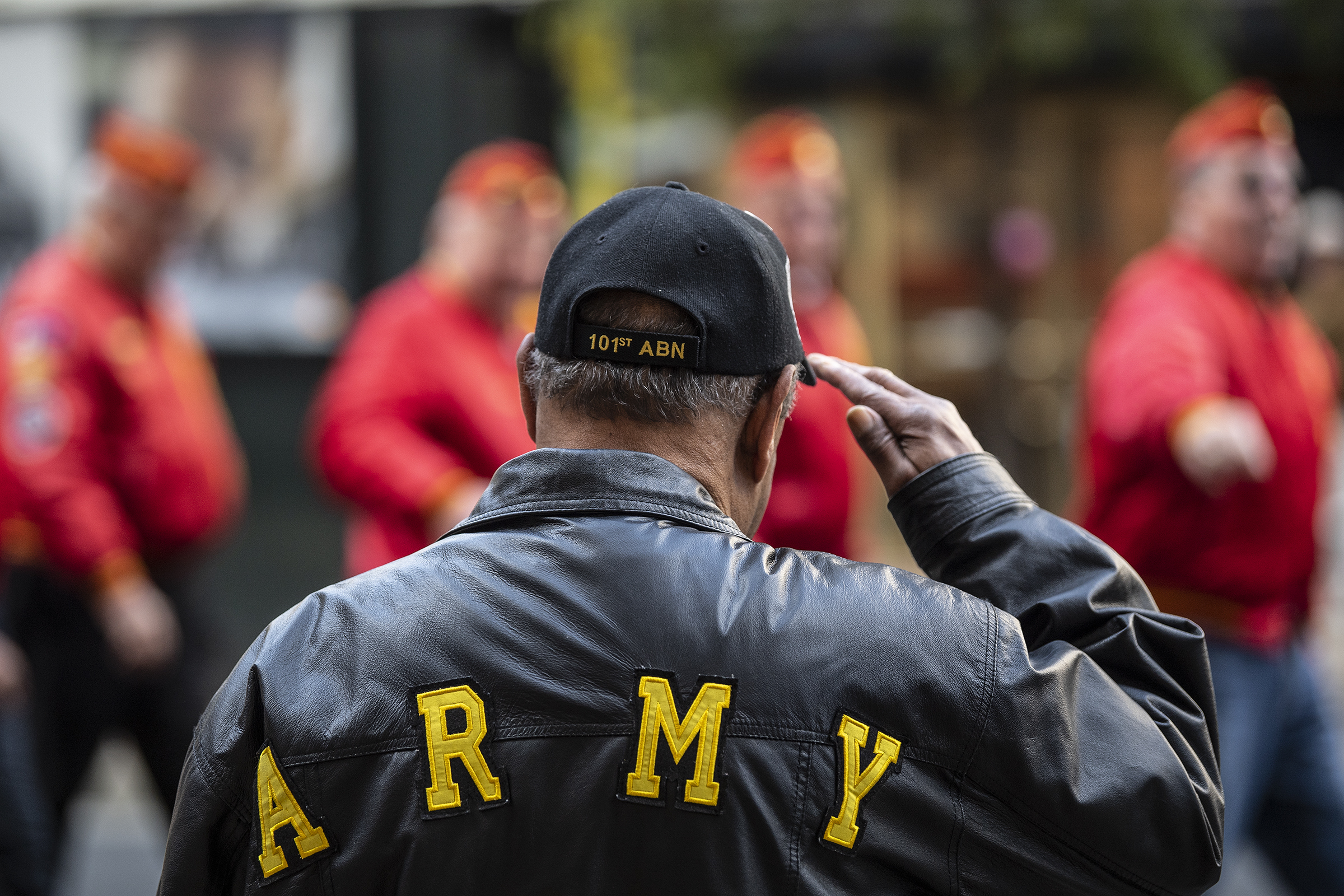For veterans, a sense of community can make all the difference | Opinion
Volunteer for a non-profit that helps wounded warriors and veterans. Visit a hospitalized veteran or someone living in a nursing home.

As the nation honors our veterans every year on Nov. 11, we take a moment to remember their service and sacrifice. How they have contributed not only to our nation’s defense, but the very fabric of our lives. Veterans are physicians, business owners, scientists, nurses, builders, and teachers, and understand what it means to be part of something greater than themselves.
So, why, after returning from often multiple deployments, do some of these remarkable men and women feel hopeless? Why after serving their country so admirably, do they consider suicide or tragically end their lives? It is a vexing question that the Veterans Administration has been trying to answer for years, with a renewed intergovernment suicide prevention effort to identify and help those veterans suffering from mental health issues, homelessness, and drug addiction before it’s too late.
While mental health professionals within the VA and in nongovernment organizations cope with this mental health crisis, there is something every one of us can do. On this Veterans Day, in addition to proudly displaying American flags, or attending commemorative ceremonies and events, why not try reaching out to a veteran? Because, at the root of the problem for most combat veterans are loneliness, isolation, and uselessness. But it doesn’t have to be this way.
I know this firsthand. After meeting many severely injured military members and their caregivers at Walter Reed National Military Medical Center more then eight years ago, I was heartbroken. Young men and women, in the prime of their lives, and among the most physically fit in the nation, were now missing arms and legs and in the depths of despair. Yet, despite what to most Americans would be a situation too uncomfortable to deal with, for others it was an opportunity to embrace. And so I dug in.
Spending nearly every weekend and many more hours on the phone with my wounded warrior friends and their families, I realized why some were doing well and others not. For example, one of my friends, Army Spec. Tyler Jeffries (retired), was at the top of his game. That was until he stepped on an IED in Afghanistan and lost both of his legs. After a long recovery at Walter Reed, Tyler moved back to North Carolina. He felt isolated from his battle buddies, missing the connection that was part of his life in the Army for years. In addition, he felt self-conscious about his disability and was tired of people staring at him and asking why he was in a wheelchair. Gradually, Tyler began to reconnect with some of his buddies, and over time, those relationships helped bring him out of his shell. Today, Tyler is the president of a nonprofit organization, called Hookin Veterans, that brings together wounded warriors twice a year for a four-day deepsea fishing experience. He realized that by reaching out to others for support and connection, he could not only heal himself but others in the process.
Then there is Marine Sgt. John Peck, who lost all four of his limbs after stepping on an IED in Afghanistan. He was so depressed after his injuries that he contemplated suicide after hearing someone at the hospital say he would have to live in a nursing home forever. After seeing another injured Marine in a wheelchair with his daughter and wife, Peck realized that a future for him was possible and took another course; that changed everything. He began helping others in a variety of ways and talking to his therapists — not just about him — but about their lives as well. In only a few years, Peck would be one of only two military members to receive a double arm transplant. He also got married and is now embarking on a public speaking career to help others who are in their “dark spots” regain their purpose.
So, on this Veterans Day, please get involved. Volunteer for a nonprofit that helps wounded warriors and veterans. Visit a hospitalized veteran or someone living in a nursing home. Find the veterans living in your community and establish a connection. It’s really that simple but incredibly important. Flags and ceremonies are wonderful, but touching someone’s heart can mean the difference between life and death.
Dava Guerin is the author and coauthor of six books, including four about wounded warriors, veterans, and their caregivers.